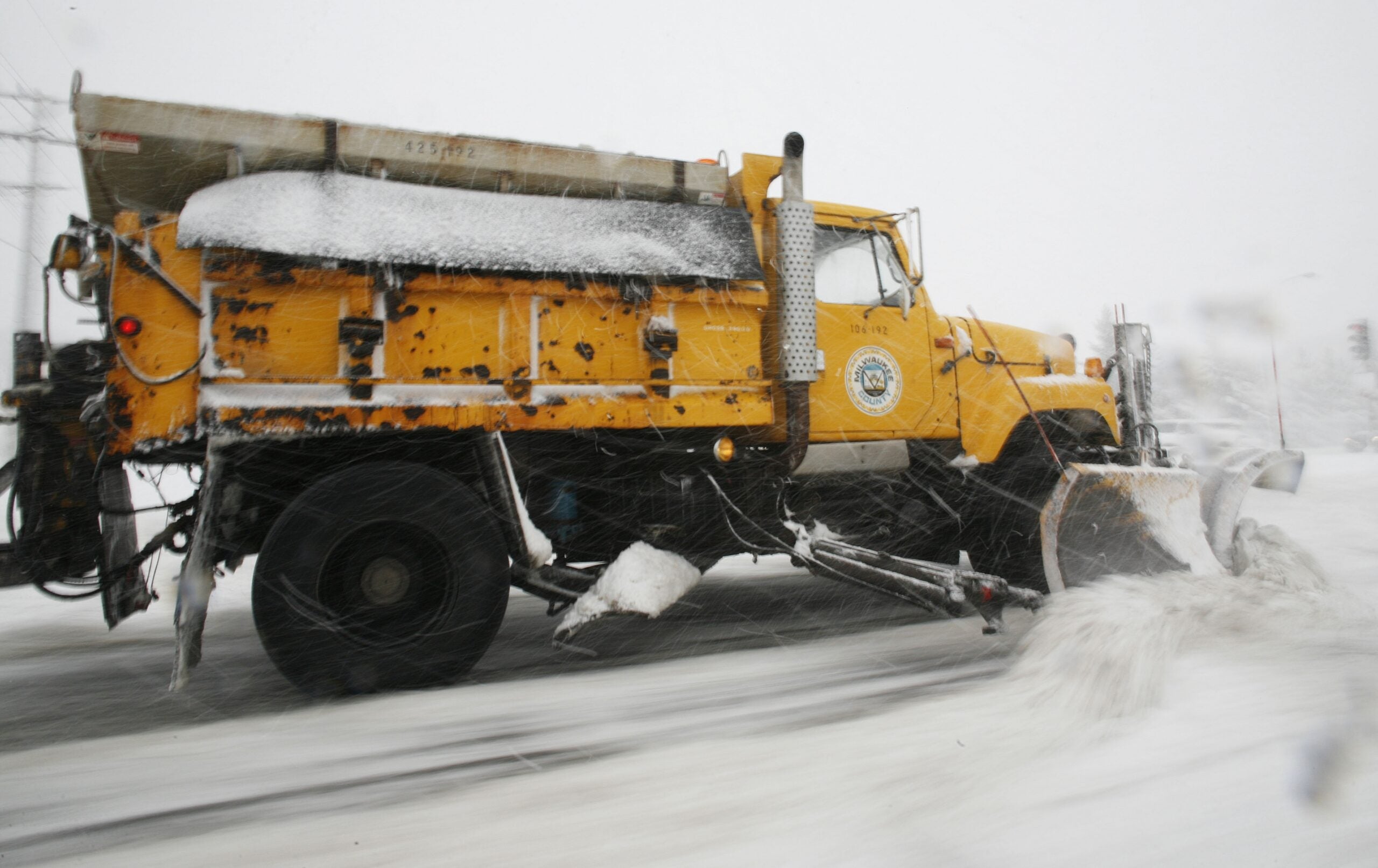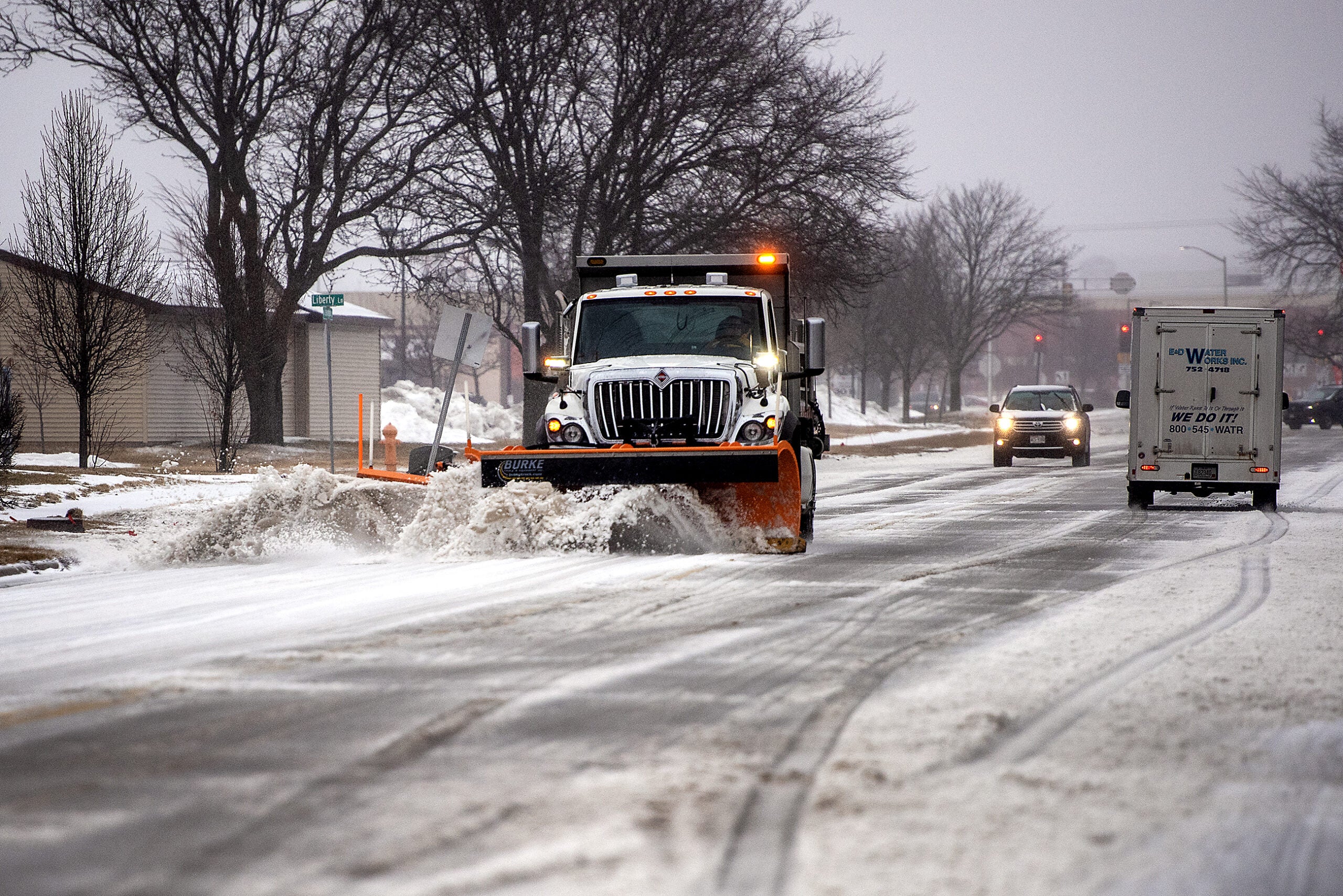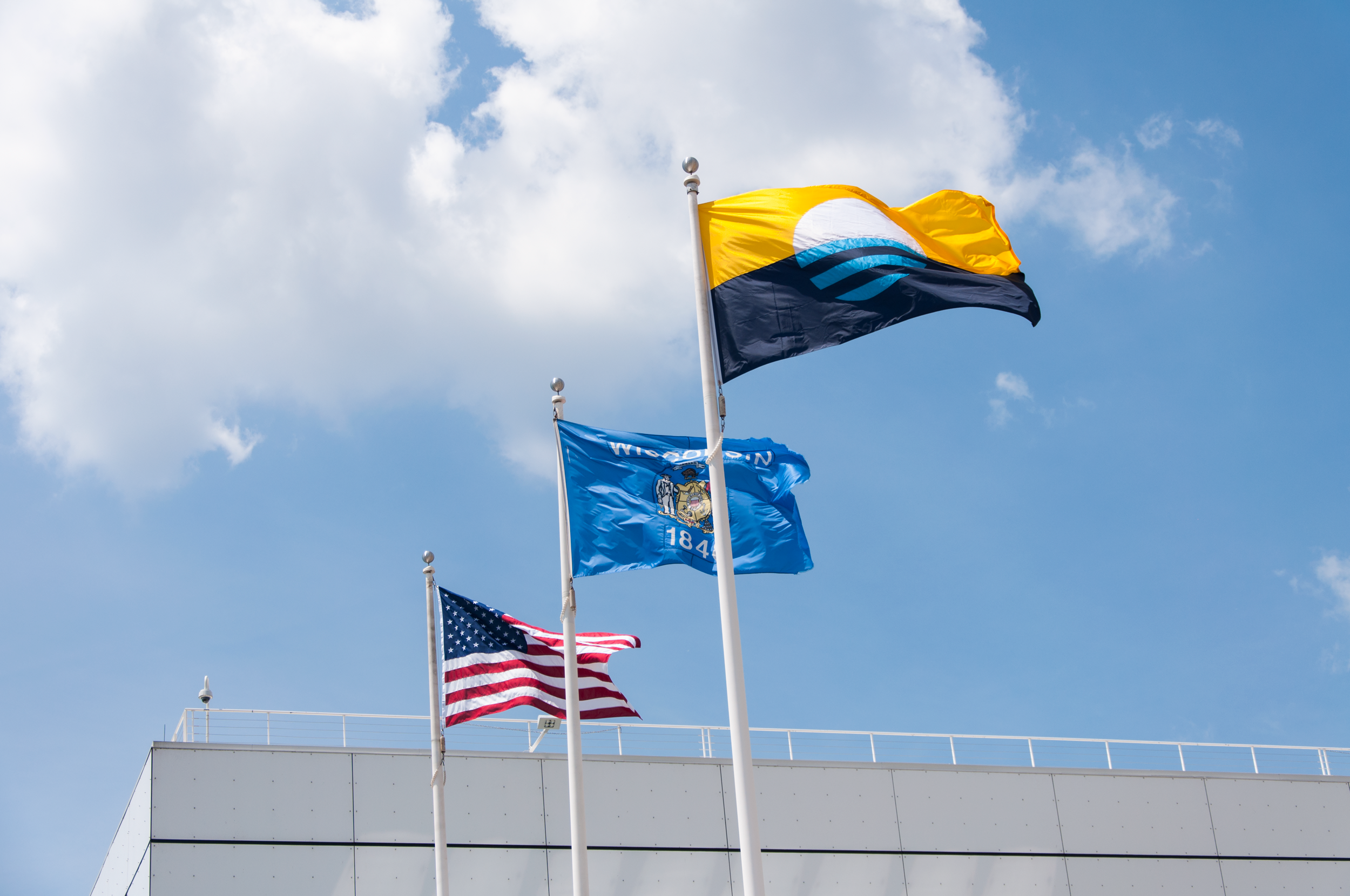Milwaukee alders are pushing the city to explore eliminating a city fee for snow removal after “widespread concerns” about snow removal failures during a recent snowstorm.
The fee paid by most Milwaukee residents has been in place for years, and the discussion by City Council members comes after resident complaints about how the city manages plowing.
“If we can’t handle four inches of snow now, what’s going to happen the rest of the winter?” Milwaukee Alder Peter Burgelis said.
Stay informed on the latest news
Sign up for WPR’s email newsletter.
Milwaukee got around 4.5 inches of snow during a storm on Dec. 19 and Dec. 20. Burgelis said he believes many of the main roads in the city were properly plowed.
“But inside of neighborhoods, where people live, those streets, many were untreated altogether,” Burgelis said.
He said he heard similar complaints from other alders.
“It wasn’t just an isolated incident or isolated plowing or lack of plowing in a handful of neighborhoods in my district, but that was really seen citywide in all parts of Milwaukee,” he said.
A statement from Burgelis said residents reported “unsafe road conditions” throughout the city after the storm.
Milwaukee Alder Lamont Westmoreland also said he received numerous complaints from residents about the snow removal response from the Milwaukee Department of Public Works.
“Taxes can’t continue to go up, people can’t continue to shell out more dollars, and the services continue to be lackluster,” Westmoreland said.

The city’s snow and ice removal fee is $1.13 per foot of street frontage on a property. Residents are charged the fee annually, Burgelis said. If the city were to return that fee to residents, it would leave an $11.3 million gap in the city’s budget.
Burgelis did say the city likely doesn’t have the “capacity” to return all of that money to citizens.
“But if the city is charging for a service, there’s an expectation that residents get something for that fee,” he said.
On Wednesday, Milwaukee’s public works committee will discuss “evaluating mechanisms to provide a snowplow fee refund to some or all city residents,” Burgelis’ statement said. “It will also address potential improvements to ensure timely and effective leaf collection and snow removal in the future.”
Some of the problems of the December storm were exacerbated by late leaf pick-up.
Burgelis said the snow removal fee in Milwaukee began years ago when shared revenue from the state remained stagnant. However, the city now gets more money from the state due to Act 12, a bipartisan law that overhauled local government funding.
“And unfortunately, we’re still not getting the level of service that residents expect to get from DPW (Department of Public Works),” Burgelis said.
Burgelis said he was told only around half of the city’s 200 snow plows were used during the December storm. A spokesperson for the Milwaukee Department of Public Works said the commissioner was not available for an interview.
Prior press releases from the spokesperson said crews were out for hours following the storm.
“Crews are still out working to get the side streets cleaned up,” a Dec. 20 release said. “They are salting with brine and plowing curb to curb in the residential areas. We’re making sure our streets are in good shape as the temperatures drop tonight.”
But Westmoreland said the response wasn’t good enough. He said he heard similar concerns from residents last year after a snowstorm pounded the city in January 2023.
“And then here we are, almost a year later, and not one thing has changed,” Westmoreland said.
When asked about the refund on the snow plow fee, Westmoreland didn’t say he believed that idea was “realistic.”
“People don’t want a refund on snowplowing,” he said. “People want the job done right the first time.”
In an email, Jeff Fleming, a spokesperson for Milwaukee Mayor Cavalier Johnson, said the mayor “thinks the Department of Public Works employees do very good work — often under remarkably tough conditions.”
Wisconsin Public Radio, © Copyright 2025, Board of Regents of the University of Wisconsin System and Wisconsin Educational Communications Board.




